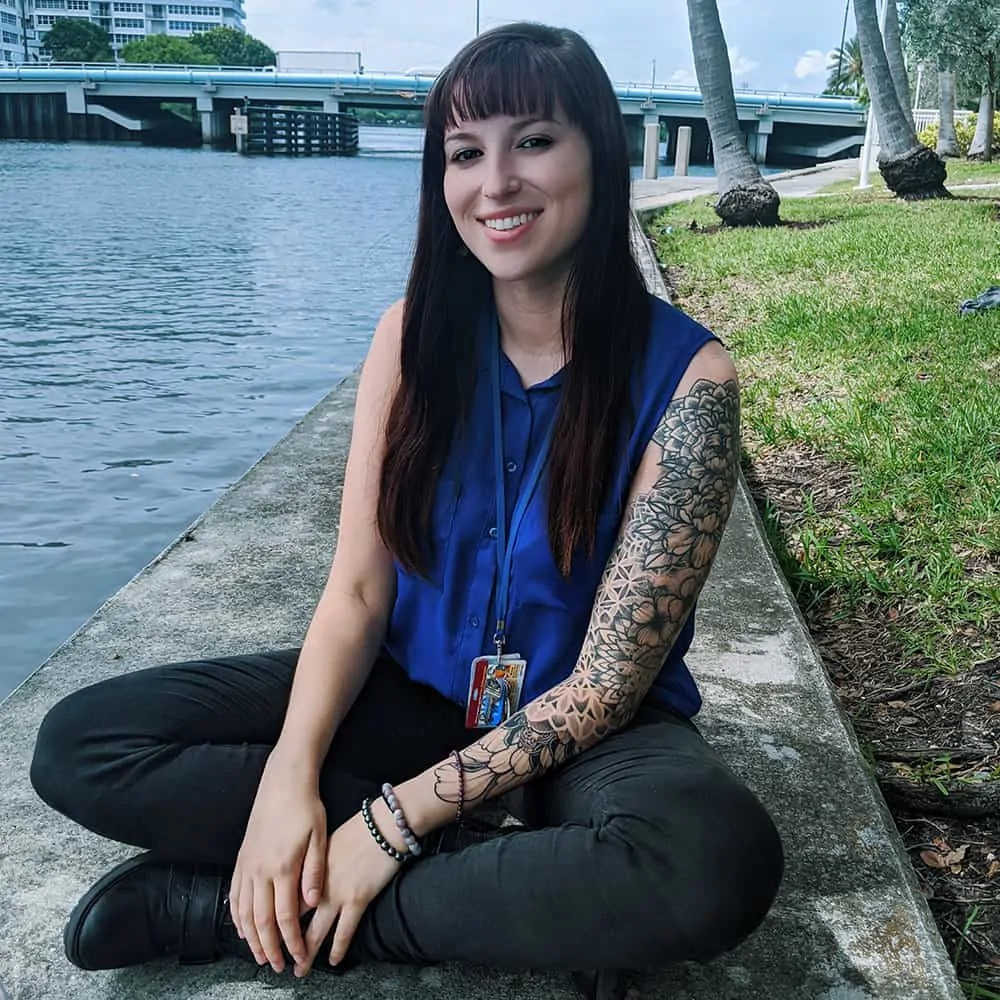Clean Date:November 19, 2015
Age:26
From:Braintree, MA

My name is Marisa and I’m a Lead Group Facilitator at Recovery Unplugged. I’m 26 years old and from Braintree, MA right outside of Boston.
My journey to addiction really began when I could no longer play sports. I had a happy and solid childhood, but when I got hurt and could no longer play soccer, it was a huge blow to my identity. I played soccer very competitively and was seriously injured for the first time when I was 12. Between the ages of 12-17, I had five different hip surgeries, and when I could no longer play, it ruined my whole concept of who I was as a person.
From there, I got really into music, which was awesome. I love music and it’s a huge part of who I am. I play guitar, bass, piano, clarinet, sax, and drums and I also sing. I also got really into drugs. I wasn’t happy with who I was and tried everything to get out of myself—drugs helped me do that. Sports were my main outlet, and when they were no longer there for me, drugs became my escape. That’s when things really started to fall apart.
Being in active addiction is like your own self-made personal hell. It’s isolating, lonely, full of self-hatred, self-harm, harm to others, and toxic relationships. You push people away who care about you. I wanted badly to stop what I was doing and how I was living but didn’t see any way out. Addiction is feeling stuck, hopeless, and helpless.
In my experience, there’s no such thing as “one rock-bottom moment”. I had a few and I feel like they all had different meanings. The last one was important because, while I didn’t lose any possessions or have any physical consequences (unlike the other times), there were emotional consequences that brought me into sobriety; and those were the most important. Having been sober before, I realized that I could do it, and was just tired of living the way I was living. Rock-bottom was an overwhelming realization that using drugs was never going to work.
Life in recovery has been awesome. It’s so much more than I ever thought it could be. The greatest gift sobriety has given me is being able to be comfortable with myself, and the understanding that everything is going to be OK, even if it’s not OK right now. It’s also taught me that everything happens for a reason, which was a hard concept to wrap my head around, because I was an atheist and didn’t like the thought of losing control. Sobriety has given me that “serenity” that everyone’s always talking about. It’s allowed to show up as a daughter, friend, and girlfriend; it’s allowed me to go back to school; it’s allowed me to have good things in my life without sabotaging them.
My advice to people in recovery is that, even though it doesn’t seem like it, things are going to get better. Give up trying to steer the ship, listen to the people who care about you and don’t pretend to be OK when you’re not. For people with a loved one struggling with addiction, take a step back and take care of “you”. My parents did that and it saved my life. Be there for support; but take care of yourself.
In recovery I’ve learned that struggles are temporary and that, even though you feel on top of the world right now, it won’t last forever and that’s OK. Another thing that I’ve learned is that gratitude is the center of everything and that I can improve my life simply by improving the way I look at it.